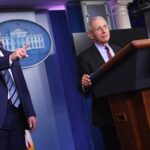Pathway to citizenship not very attractive for Hong Kong residents
China’s Ministry of Foreign Affairs said that Australia’s bare display of double standards and undisguised hypocrisy was inconceivable, after it said thousands of Hong Kong students and workers in Australia could obtain permanent residency if they passed security and character tests.
China will never accept Australia’s mistaken remarks and measures with regard to Hong Kong as they ignored the basic fact that the national security law for Hong Kong is conducive to the stable and sustainable development of “one country, two systems,” Hua Chunying, spokesperson of the ministry, said on Monday at a press conference.
Australia’s moves seriously violated international law and basic norms governing international relations, and blatantly interfered in China’s internal affairs, Hua said.
The Australian side has said that it opposes “foreign interference,” but it abused its anti-foreign interference law to intimidate overseas Chinese students, experts and related personnel, and it even adopted inappropriate and rude behavior against them, Hua said.
However, Australia frequently interfered in issues related to Hong Kong when the Chinese government’s handling of the issues was in accordance with the law, Hua noted.
On the one hand, Australia opposes China’s national security law for Hong Kong; on the other hand, it requires Hong Kong residents in Australia to pass its own national security tests, which Hua said fully exposed its double standards and undisguised hypocrisy.
Australian Prime Minister Scott Morrison on Thursday announced that Hongkongers who fear “persecution” at home after the implementation of the national security law could be offered “safe haven” visas and “a pathway to permanent residency” in Australia.
Australian acting Immigration Minister Alan Tudge said on Sunday that people from Hong Kong would only get permanent residency if they passed Australian national security and character tests.
“If there’s a serious security issue in relation to that person, they’ll be sent back,” Tudge told local media.
Chen Hong, director of the Australian Studies Center at East China Normal University in Shanghai, told the Global Times on Monday that Australia’s so-called security check is obviously a risk assessment of the potential immigrant. “There are suggestions that this check should include the applicant’s links to the Chinese mainland, which would sound the alarm to the authorities,” Chen said.
Any connection with the mainland, for example in cases where the applicant might be a direct or indirect relative of a mainland official, or the applicant’s political outlook might be judged as pro-mainland, could be categorized as high risk to Australia’s national security, Chen noted.
While Australia is trying every trick in the book to alienate the Hong Kong residents from the Chinese mainland and incentivize Hong Kong-based businesses to relocate to Australia and prioritizing highly skilled applicants from China under the changes, Hongkongers in the country seem uninterested in the policies.
Chinese observers said there might not be many Hong Kong residents who can obtain residency as the Australian government is actually keen to attract business talent from Hong Kong.
Tang Fei, a member of the Chinese Association of Hong Kong and Macao Studies and principal of the Heung To Secondary School (Tseung Kwan O), told the Global Times that Australia’s new trick didn’t seem to draw much reaction from his students who are currently in Australia.
According to media reports, about 10,500 students and 1,500 workers from Hong Kong are in Australia. They can apply for refugee settlement if they can prove they face “persecution” when returning to Hong Kong. Tudge said 137 had already applied for “asylum,” media reports said on Sunday.
Chen said the refugee program, which is meant to be humanitarian in essence, is being manipulated by the Morrison administration to contest and challenge China’s sovereignty.
“It’s plain to any eye that there is no humanitarian crisis in Hong Kong, but Australia’s Liberal-National Coalition government is politicizing and weaponizing its refugee policy to alienate the people of Hong Kong from the Chinese mainland, and to stir up more hostility instead of promoting stability,” noted Chen.
The policy of Australia’s Liberal-National Coalition administration is becoming increasing assertive and aggressive, making it appear like “a willful and headstrong child regardless of consequences,” he said, noting that “it is most worrying that the bilateral relationship is being progressively pushed into an abyss of disrepair.”
Australia is a member of the Five Eyes alliance, which also includes New Zealand, the US, Canada and the UK. Since China’s national security law for Hong Kong was enacted on June 30, Canada has suspended its extradition treaty, while the UK has offered citizenship options to Hong Kong residents.
View of Hong Kong streets Photo: VCG




